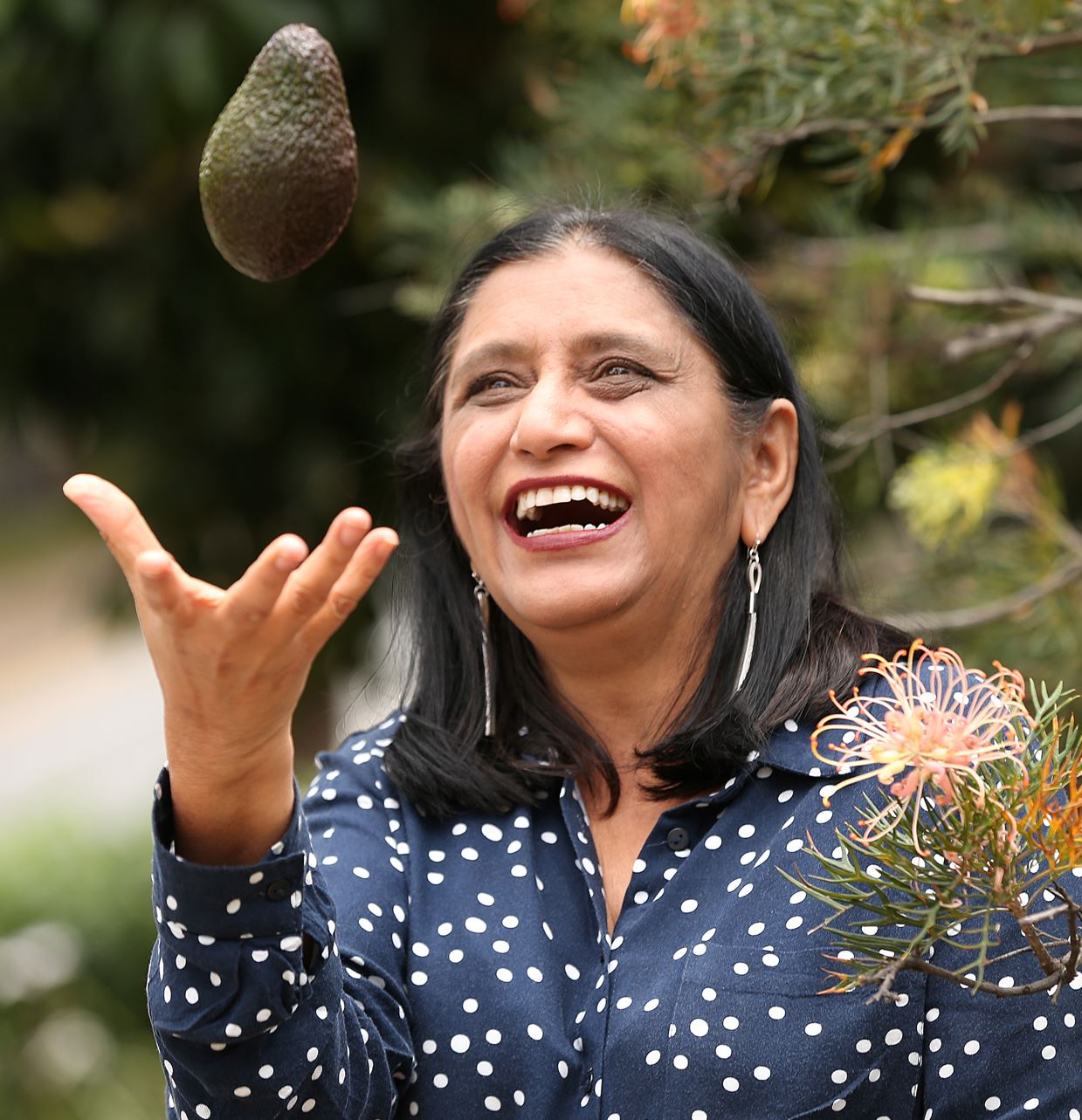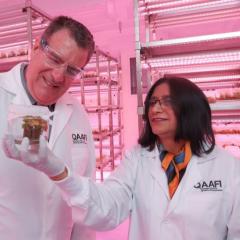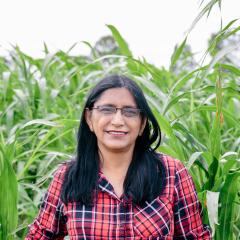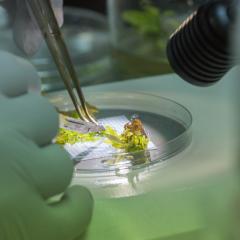At a nursery in the far reaches of Northern NSW, Australian technology is turning the avocado industry on its head.
For the past six years scientists have been working with the Anderson Horticulture nursery and other avocado growers to produce tissue-culture-based avocado clonal plants.

Now the nursery has been awarded more than $400,000 to help commercialise their product, to grow avocados in bigger numbers, with more supply likely to mean lower prices.
"If farmers have healthier trees, higher yields and better fruit quality, then there will be more fruit on the market which will obviously bring the price down," Anderson Horticulture general manager Daniel Abbey said.
"The grant will go towards us setting up and developing this new part of the business, the setting up of hothouses ... we've got to do it all on scale now."
The research project was first set up in 2013 by a team at the University of Queensland led by Neena Mitter, before successful trials across Australia.
"We were able to show the proof of concept that yes the technology works, yes we can do cloning of avocado and we can generate plants, the next stage is making it commercially viable," Professor Mitter said.
The head of the Centre for Horticultural Science, Professor Mitter said the technology will develop a commercial quantity of avocado clonal plants by 2023.
The need for the technology was identified because of the difficulties growing avocados at scale, and will help service the increasing demand for avocados.
"There is a lot of strong desire for avocados in our neighbouring countries, by having good quality plants and good quality supply it will help us to meet our export targets," Prof Mitter said.
"The growers now have a choice to put the best trees in their orchard, they have a choice to do high intensity orchards if they want to."
"With this new grant the plant can now be multiplied in large numbers," Prof Mitter said.

The micropropagation technology is one of 22 projects nationally to share more than $12 million in funding for local businesses, under the Australian Government's Entrepreneurs' Program.
"It's a much cleaner way to produce these rootstocks ... it's going to be much better for not just the yield but the fruit quality and the overall return for the farmer," said Anderson's Daniel Abbey.
The nursery currently grows around 100,000 avocado plants a year from seeds, and Mr Abbey hopes that will double courtesy of the cloning technology.
"Other industries like bananas, blueberries and strawberries they all get their plants from tissue culture, but avocados have been so difficult."
Minister for Industry, Energy and Emissions Reduction Angus Taylor said the grants will help home-grown companies grow, commercialise their products and gain further investments to enter new domestic and international markets.
"We are proud to support Australian companies take their innovative technologies and products to the next level through the commercialisation process," Mr Taylor said.
Avocado clonal trees to feed the masses
Read the original article from Good Fruit and Vegetables here.
Contact: Professor Neena Mitter, Director, Centre for Horticultural Science, Queensland Alliance for Agriculture and Food Innovation, The University of Queensland, E: n.mitter@uq.edu.au, M: +61 434 628 094; Margaret Puls, QAAFI media M: +61 0 419 578 356, E: m.puls@uq.edu.au or qaaficomms@uq.edu.au
The Queensland Alliance for Agriculture and Food Innovation is a research institute at The University of Queensland, established with and supported by the Queensland Department of Primary Industries.




